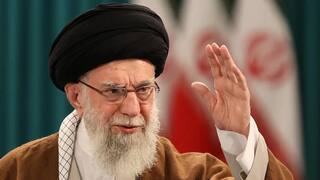Google Delays Launch Of Gemini AI Chatbot After It Fails To Answer Non-English Queries
The decision to delay the launch of Google Gemini AI chatbot was taken by company CEO Sundar Pichai, reports say.

Google has quietly postponed the public launch of Gemini, a conversational artificial intelligence (AI) chatbot intended to rival OpenAI, to January, according to two individuals familiar with the matter, the media has reported. The much-anticipated release of Google's AI chatbot was originally scheduled for this week, but, now has been postponed. The delay comes in the wake of reported difficulties with Gemini reliably handling certain "non-English" queries, says a report by The Information.
The decision to delay the launch of Google Gemini AI chatbot was taken by company CEO Sundar Pichai, reports say.
Earlier in November, Pichai emphasized that the company's primary focus is expediting the release of Gemini 1.0. The CEO added that Google is committed to ensuring the next-generation AI model is both competitive and state-of-the-art.
Upon its announcement at Google's annual I/O conference in May, Gemini was initially seen as the tech giant's response to OpenAI's widely popular AI tool, ChatGPT. Subsequently, DeepMind CEO Demis Hassabis asserted that Gemini would surpass ChatGPT in power when it eventually launches. Google had earlier mentioned in a blog post: “We’re already at work on Gemini — our next model created from the ground up to be multimodal, highly efficient at tool and API integrations, and built to enable future innovations, like memory and planning. Gemini is still in training, but it’s already exhibiting multimodal capabilities never before seen in prior models."
Equipped with multimodal capabilities enabling simultaneous understanding and utilization of data from various sources like text, images, audio, and video, Google seeks to rival ChatGPT's supremacy in the generative AI realm Gemini.
Meanwhile, Sam Altman has resumed his role as the Chief Executive Officer of OpenAI, effectively resolving the crisis triggered by his abrupt termination on November 17 by the board of directors. The board, responsible for his dismissal, underwent a substantial overhaul following a rebellion by the workforce, with the exception of Adam D’Angelo, CEO of Quora, who played a role in Altman's firing but has retained his position on the board.
Looking ahead, Altman outlined three immediate priorities: advancing the research plan and increasing investment in full-stack safety efforts, improving and deploying products to serve customers, and enhancing governance structures with a focus on diverse perspectives. He also announced plans for an independent review of recent events.






































